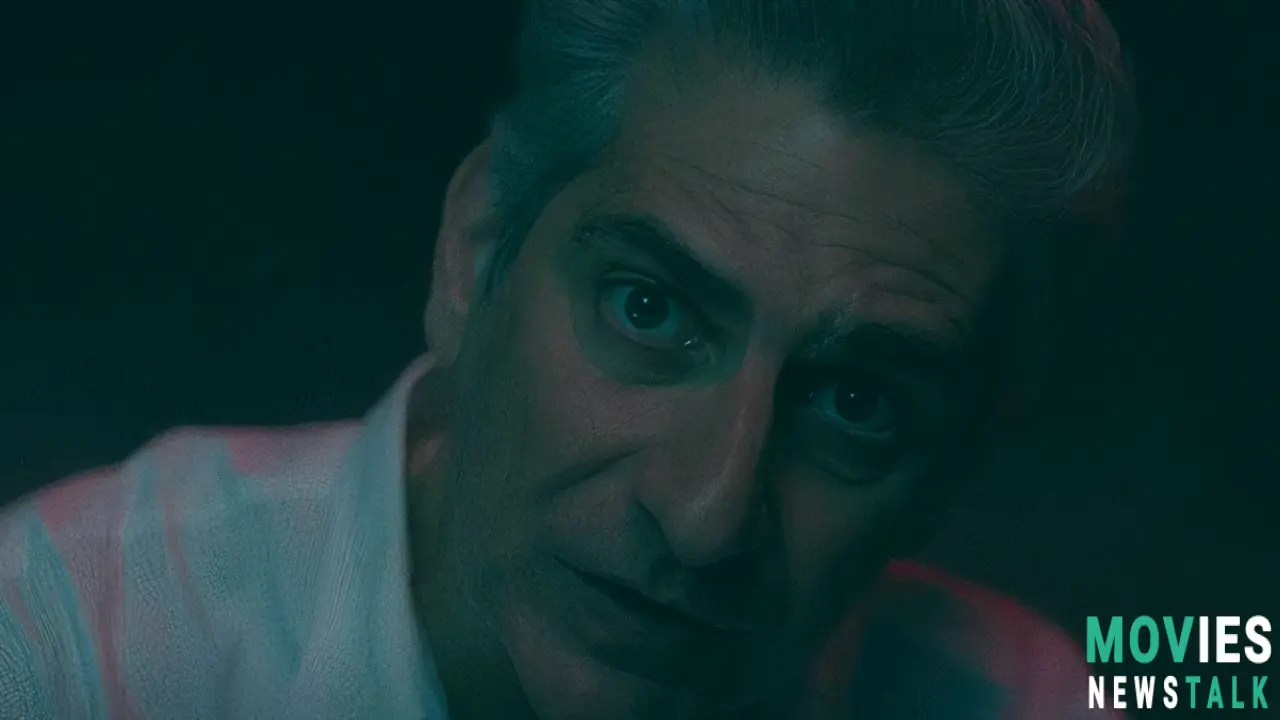American Horror Stories Season 4: Unraveling the Twisted Ending of "Backrooms"!
American Horror Stories' "Backrooms": A Descent into Guilt and the Afterlife
Hulu's American Horror Stories season 4, episode 5 ("Backrooms") is a seriously creepy exploration of guilt, consequences and that super unsettling space between life and death, starring Michael Imperioli, Matthew Maher,Natalie Gold, and David Pittu. This article contains spoilers! Turn away now if you haven't watched yet. It’s all about a successful Hollywood writer,Daniel, dealing with his son,Roman's, mysterious disappearance. It goes deep, people. We're talking seriously unsettling stuff involving a disturbing, surreal realm.
The whole episode centers onDaniel; His quest to understand the “Backrooms” is tied to his desperate need to hide his own truth, from the world and himself! This entire story is unsettling, but not explicitly gory–but it really becomes incredibly haunting because of its implications regarding some very problematic moments that become clearer with retrospect;It raises those crucial questions regarding acceptance and what kind of consequences will result from this whole event and the ending really underscores the very bleak, haunting and uncomfortable tone. Let's dissect how this entire chilling story unravels and those hidden elements implied at the ending.
The Shocking Truth: Who Killed Roman?
The central mystery revolves aroundRoman's death.It slowly unveilsDaniel’s terrible truth:he murdered his own son! The entire episode initially keeps things ambiguous; Danieldeals with his son's vanishing. Yet that disappearance isn't exactly a normal thing–Daniel keeps getting pulled into these creepy, otherworldly "Backrooms" filled with scary figures that haunt his waking life. Those visits slowly become longer in the real world– he could be gone for weeks! Yet his entire experiences in that creepy reality completely tie into those feelings of regret and grief and guilt.
Those haunting appearances in the "Backrooms"are what show a version ofRoman, yet changed forever,Roman’s eyes are gone, covered by a mask – that makes viewers sense an oncoming tragedy, withDaniel’s hidden memories—and the key piece of evidence, some security footage showing him killingRoman. Roman'sghostly anger towards his father is completely understandable, setting the stage for this seriously grim conclusion. It is almost as if the very spirits themselves become more relevant to Daniel's experiences; and its purpose is completely linked to what those spirits would represent: This serves to underscore the overall importance of the characters within those narratives, giving each ghost a direct relationship to the story that affectsDaniel.
What Are the Backrooms? A Purgatory of Past Sins
The "Backrooms" themselves are some really creepy in-between space. It's this weird limbo; somewhere between life and death, described clearly by a key characterEli(Matthew Maher). It can appear in mundane forms (shopping malls, banquet halls)! The experiences inside aren't simply hallucinations: These moments involve personal demons. The experiences of a secondary character are what explains these:Eli, who unintentionally caused someone's death through accidental driving. He enters this nightmarish purgatory as an expiation process and shows how this place contains everything; memories, reflecting sins of those who avoid any true punishment.
The key figure in this purgatory is the infamousRed Woman; that sinister character mentioned but not fully seen becomes yet another detail, creating an added air of suspense without needing graphic imagery and successfully manages to generate great fear and a disturbing tone, asEliwas freed from these haunted realms when he accepts and confesses; a point underscoring the key significance of dealing with and addressing past sins– this was emphasized many times in this series.
Daniel's Fate: A Fitting Hell in "Backrooms"
Daniel’s crimes eventually surface, leading to a deadly confrontation with the police; He gets shot; then he takes that ride down; deeper into a truly hellish reality. It gets way worse – theRed Womanis there to meet him – taking him to a soul-crushing, empty purgatory! It was intentionally and cleverly made a place he can’t possibly escape; completely alone for eternity. It’s quite disturbing but somehow satisfying! There's just him and those journals and magazines discussing proper father-son relationships. A truly specific punishment and hell designed forDaniel; a moment where viewers finally see the culmination of a dark story.
The Meaning of "Backrooms": Guilt's Unforgiving Grip
This "Backrooms" episode revolves entirely on guilt!AsDanieldelves further into those disturbing otherworldly realities; those visions of the Backrooms itself becomes way more specific: a progression shown effectively that builds the entire tension in those unsettling, emotional revelations. Initially, the images involved seemingly empty rooms; it then reflectsDaniel'sachievements— then later shows failings. Those places and scenes were what showed those crucial failings that ultimately created and built a narrative that showedDaniel’sown desperate desire to bury himself from this awful truth. Those attempts to avoid it however lead to getting lost; hopelessly lost and unable to escape that horrible truth from all he's done.
Contrast that toEli; Even after making his confession, his admission of guilt meant he found a way to possibly atone, he finally accepts those aspects and shows some signs of acceptance that are needed. UnlikeEli;Daniel’s rejection means the worst imaginable result– another significant consequence highlighted perfectly in this ending, showing a truly well-crafted resolution and ending to this entire arc.
Conclusion: "Backrooms" A Masterclass in Atmospheric Horror!
"Backrooms" is intense.It utilizes an effective build; it's atmosphere creates some serious creepiness and haunting moments without needing extreme graphic imagery; instead building an amazing level of dread through those thematic undercurrents, creating memorable scares without simply resorting to what some fans would classify as predictable scare techniques and is ultimately an achievement in suspense, and is one of the stronger releases of this anthology.Those unsettling otherworldly spaces reflect the characters themselves; It was very effectively conveying intense guilt in an entirely believable and appropriate way, leading to the show’s unforgettable and grim climax; and successfully ends things, emphasizing the consequences resulting from refusing to face your own wrongdoing. It’s one of those moments that haunt you, long after it’s over.

